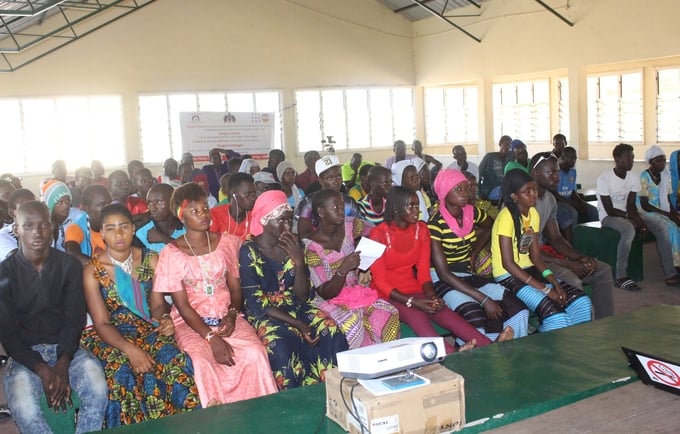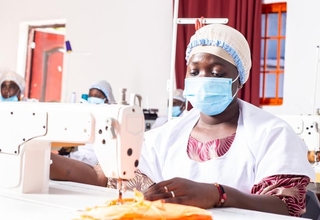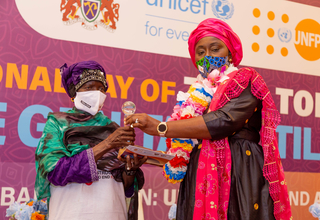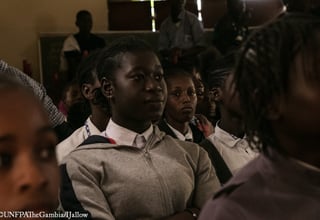According to recent studies, Female Genital Mutilation (FGM) is still heavily practiced in three districts of the Upper River Region (URR) namely: Sandu, Wuli East and Wuli West Districts. As a result, the Gambia Committee on Harmful Traditional Practices affecting the health of women and children (GAMCOTRAP) held sensitisation activities for one hundred youth and women and girls of reproductive age from various districts, on the health complications of FGM, on the 14 and 15 November 2019, respectively.
Both activities supported by UNFPA, aim to accelerate the abandonment of FGM and other harmful traditional practices like Child Marriages and other forms of Gender-Based Violence (GBV). The GAMCOTRAP team led by Musa Jallow, emphasised that both sensitizations are meant to empower the youth, women and girls respectively with requisite information on harmful traditional practices and how they can collectively take a stance against it. He added that, there is a need to raise the awareness of the youth, noting that they are instrumental in changing harmful practices in society.
The facilitators encouraged the participants to utilise the knowledge gained and share their experiences so as to contribute to the elimination of harmful traditional practices in their various communities and to work towards achieving an FGM-free society. According to the lead facilitator,
“these harmful traditional practices are changeable depending on the advancement of knowledge as well as generational changes”.
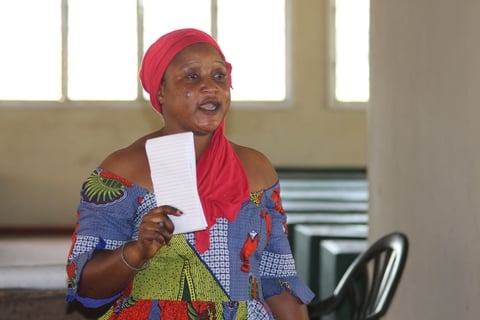
Fatou Bojang, GAMCOTRAP field coordinator during her deliberations added that, FGM is one of the main issues affecting the health of women and girls in The Gambia. She took the participants through the effects of FGM, citing excessive bleeding, urinary retention, among other health and physical consequences. She pointed out the importance of education and encouraged parents to enroll their children in school. This she stressed, will help improve their understanding on social issues as well as help curb poverty in this generation and by extension the whole country.
Talking to the women of Sare Guba, Fatou Bojang encouraged them to be conscious of family planning, noting that understanding family planning would enable them to practice birth-spacing, which is likely to strengthen their health and well-being.
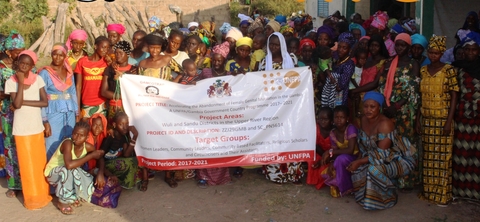
The different yet very similar activities, left the different target population groups with the needed information to make informed choices to protect themselves and the next generation from harmful traditional practices.
